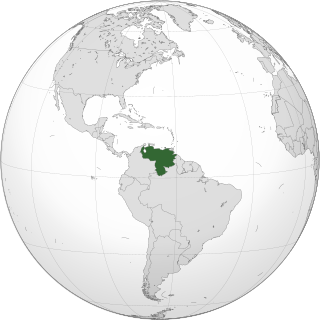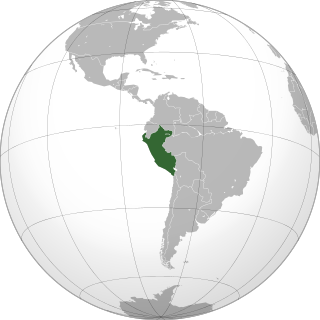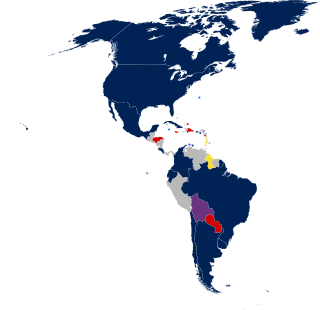Related Research Articles

A tribunal, generally, is any person or institution with authority to judge, adjudicate on, or determine claims or disputes—whether or not it is called a tribunal in its title. For example, an advocate who appears before a court with a single judge could describe that judge as "their tribunal". Many governmental bodies are titled "tribunals" to emphasize that they are not courts of normal jurisdiction. For instance, the International Criminal Tribunal for Rwanda was a body specially constituted under international law; in Great Britain, employment tribunals are bodies set up to hear specific employment disputes.

Macau law is broadly based on Portuguese law, and therefore part of the civil law tradition of continental European legal systems. Portuguese law is itself highly influenced by German law. However, many other influences are present, including Chinese law, Italian law, and some narrow aspects of common law.

Lesbian, gay, bisexual, and transgender (LGBT) people in Venezuela face legal challenges not experienced by non-LGBT residents. Both male and female types of same-sex sexual activity are legal in Venezuela, but same-sex couples and households headed by same-sex couples are not eligible for the same legal protections available to opposite-sex married couples. Also, same-sex marriage and de facto unions are constitutionally banned since 1999.

Lesbian, gay, bisexual, and transgender (LGBT) rights in Chile have advanced significantly in the 21st century, and are now quite progressive.

In most legal jurisdictions, a supreme court, also known as a court of last resort, apex court, and highcourt of appeal, is the highest court within the hierarchy of courts. Broadly speaking, the decisions of a supreme court are binding on all other courts in a nation and are not subject to further review by any other court. Supreme courts typically function primarily as appellate courts, hearing appeals from decisions of lower trial courts, or from intermediate-level appellate courts. A Supreme Court can also, in certain circumstances, act as a court of original jurisdiction, however, this is typically limited to constitutional law.

The judiciary of Portugal is a system of courts that together constitute one of the four organs of Sovereignty as defined by the Portuguese Constitution. The courts are independent from the other three Portuguese organs of Sovereignty.

The age of consent for sexual activity refers to an age at or above which an individual can engage in unfettered sexual relations with another who is of the same age or older. This age varies by jurisdiction across South America, codified in laws which may also stipulate the specific activities that are permitted or the gender of participants for different ages. Other variables may exist, such as close-in-age exemptions.

Lesbian, gay, bisexual, and transgender (LGBT) people in Peru face some legal challenges not experienced by other residents. Same-sex sexual activity among consenting adults is legal. However, households headed by same-sex couples are not eligible for the same legal protections available to opposite-sex couples.

Laws governing lesbian, gay, bisexual, and transgender (LGBT) rights are complex and diverse in the Americas, and acceptance of LGBT persons varies widely.

The Judiciary of the Czech Republic is set out in the Constitution, which defines courts as independent institutions within the constitutional framework of checks and balances.

Lesbian, gay, bisexual, and transgender (LGBT) people in the Dominican Republic do not possess the same legal protections as non-LGBT residents, and face social challenges that are not experienced by other people. While the Dominican Criminal Code does not expressly prohibit same-sex sexual relations or cross-dressing, it also does not address discrimination or harassment on the account of sexual orientation or gender identity, nor does it recognize same-sex unions in any form, whether it be marriage or partnerships. Households headed by same-sex couples are also not eligible for any of the same rights given to opposite-sex married couples, as same-sex marriage is constitutionally banned in the country.

The Civil Code of the Republic of Chile is the work of jurist and legislator Andrés Bello. After several years of individual work, Bello delivered a complete project of the Code on November 22, 1855, which was sent to Congress by President Manuel Montt, preceded by a foreword by Bello himself. Congress passed the Civil Code into law on December 14, 1855. It then came into force on January 1, 1857. Although it has been the object of numerous alterations, the Code has been kept in force since then.
The Administrative Department of Public Service is the Colombian executive administrative department in charge of formulating the general policies of public administration, especially in matters relating to civil service, management, internal control and streamlined procedures of the Executive Branch of Colombia.

The General Comptroller of the Republic of Chile is a constitutionally autonomous body of the Government of Chile based on chapter 10 of the Constitution of Chile and it is in charge of the control of the legal aspects, management, preaudit and postaudit functions of all the activities of the centralized and decentralized civil service, whatever its forms of organization may be, as well as of other powers granted by law.

The legal system of Uruguay belongs to the Continental Law tradition.
The law of Mexico is based upon the Constitution of Mexico and follows the civil law tradition.

The judiciary of Uruguay is a branch of the government of Uruguay that interprets and applies the laws of Uruguay, to ensure equal justice under law, and to provide a mechanism for dispute resolution. The legal system of Uruguay is a civil law system, with public law based on the 1967 Constitution, amended in 1989, 1994, 1997, and 2004. The Constitution declares Uruguay to be a democratic republic, and separates the government into three equal branches, executive, legislative and judicial. Private relationships are subject to the Uruguayan Civil Code, originally published in 1868. The Constitution defines the judiciary as a hierarchical system courts, with the highest court being a five-member Supreme Court, who are appointed by the legislative branch of the government, for ten-year terms. The Supreme Court appoints the judges of most of the lower courts. Below the Supreme Court, there are sixteen courts of appeal, each of which has three judges. Seven of the courts of appeal specialize in civil matters, four specialize in criminal matters, three cover labour law, and two focus on family matters. At the lowest tier are justices of the peace and courts of first instance specialized in administrative, civil, criminal, customs, juvenile, and labour cases. Although the hierarchy, all of them are functionally and structurally impartial, that is, the tribunal should not be interested in the object of the particular case, and the higher tribunal does not impose a behaviour nor precedent to the lower ones. There are also separate courts for auditing, elections and the military.

The Supreme Court of the Dominican Republic is the highest court existing in the Republic and is, therefore, the head of the judiciary in the country.
The law of Bolivia includes a constitution and a number of codes.
The law of Peru includes a constitution and legislation. The law of Perú is part of the Roman-Germanic tradition that concedes the utmost importance to the written law, therefore, statutes known as leyes are the primary source of the law.
References
This article includes a list of general references, but it lacks sufficient corresponding inline citations .(September 2008) |
- Brief review of Chile's constitutional history – Chile's Library of Congress (in Spanish)
- Vergara Blanco, Alejandro, "Panorama General del Derecho Administrativo Chileno", in Santiago González-Varas (dir.) El Derecho Administrativo Iberoamericano", pp. 137 ss.
- Tapia Rodríguez, Mauricio, "Código Civil 1855–2005. Evolución y Perspectivas", Ed. Jurídica de Chile, 2005, p. 45.
- Somarriva Undurraga, Manuel, "Evolución del Código Civil chileno", Ed. Nascimento, 1955.
- Edwin Montefiore Borchard. Guide to the law and legal literature of Argentina, Brazil and Chile. Law Library of Congress. Government Printing Office. Washington. 1917. Internet Archive
- Helen Lord Clagett. A guide to the law and legal literature of Chile, 1917–1946. Library of Congress. Washington. 1947. HathiTrust
- Daniela Horvitz. Family law in Chile: overview. Thomson-Reuters Practical Law. 2020.
